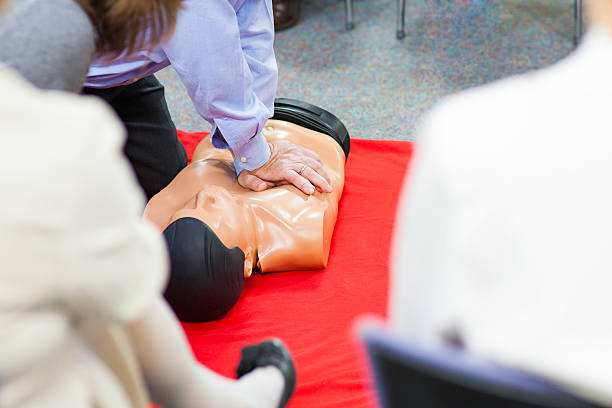Early Childhood Education (ECE) plays a crucial role in shaping young minds, providing children with the foundation they need for lifelong learning and development. Quality early education fosters cognitive, social, and emotional growth, making skilled educators essential in this field.
Traineeships offer a practical and structured pathway for individuals looking to enter the ECE sector. They combine hands-on experience with formal study, allowing trainees to develop skills while earning a qualification. This approach helps bridge the gap between theoretical knowledge and real-world application.
An early childhood education traineeship is ideal for those passionate about working with children and creating a positive learning environment. Whether you’re a school leaver, career changer, or someone looking to upskill, a traineeship provides valuable opportunities for professional growth and long-term career prospects in childcare and education.
What is an Early Childhood Education Traineeship?
An Early Childhood Education (ECE) traineeship is a structured program that allows individuals to gain hands-on experience while completing formal training. It provides a pathway to becoming a qualified early childhood educator through a combination of paid work and study. Trainees work in childcare settings under supervision, applying what they learn in real-world scenarios.
These traineeships blend practical learning with nationally recognised qualifications, such as a Certificate III in Early Childhood Education and Care or a Diploma in Early Childhood Education and Care. This approach ensures trainees develop essential skills in child development, safety, and education while earning an income.
If you’re looking for an Early Childhood Education (ECE) traineeship, look no further! METS is here to support you. As a registered training organisation (RTO), we provide high-quality training, hands-on experience, and the guidance you need to build a rewarding career in childcare. Start your journey with METS today!
Benefits of an Early Childhood Education Traineeship
Hands-on Experience in Childcare Settings
One of the biggest advantages of an ECE traineeship is the opportunity to gain real-world experience. Instead of just studying theories in a classroom, trainees work directly with children in childcare centers, preschools, or early learning facilities. This hands-on approach allows trainees to develop essential skills, such as creating engaging learning activities, managing children’s routines, and supporting their development in a practical setting.
Earn While You Learn
Unlike traditional study pathways, an ECE traineeship allows you to earn a salary while completing your qualifications. Trainees work as employees under the guidance of experienced educators while studying towards a Certificate III or Diploma in Early Childhood Education and Care. This means you can gain financial independence and reduce the burden of student loans while still advancing your career.
Pathway to Career Growth and Further Study
Completing an ECE traineeship opens doors to further career opportunities. Graduates can progress to higher-level roles, such as lead educators, center directors, or even early childhood teachers with additional study. Many trainees go on to complete a Diploma in Early Childhood Education and Care, which can later be used as a pathway to university degrees in education.
Support from Experienced Mentors and Trainers
Throughout the traineeship, participants receive support from both workplace supervisors and registered training organisations (RTOs). These mentors provide valuable feedback, guidance, and practical knowledge that help trainees develop confidence in their roles. The structured learning approach ensures that trainees gain both the technical skills and professional competencies needed to succeed in the early childhood education sector.
What to Expect During Your Traineeship
Training and Coursework
As part of the traineeship, you will complete formal studies through a Registered Training Organisation (RTO) while working in a childcare center. The coursework typically covers child development, health and safety, learning frameworks, and effective communication with children and families. Training is often flexible, allowing you to balance work and study through online modules, workshops, and practical assignments.
On-the-Job Learning
A major component of the traineeship is hands-on experience in a childcare setting. You’ll be involved in daily activities such as caring for children, setting up play-based learning experiences, maintaining hygiene and safety standards, and supporting children’s emotional and social development. This practical training helps build essential skills that cannot be learned from textbooks alone.
Mentorship and Supervision
Throughout your traineeship, you’ll receive guidance and support from experienced childcare professionals. Your mentors and supervisors will provide valuable insights, answer questions, and help you develop confidence in your role. Their feedback ensures that you are meeting industry standards and continuously improving your skills.
Assessments and Evaluations
Regular competency assessments are conducted to track your progress. These may include practical observations, written assignments, and workplace evaluations. Your RTO and employer will work together to ensure you are developing the necessary skills and meeting the qualification requirements. Feedback sessions will help you understand your strengths and areas for improvement, keeping you on track for a successful career in early childhood education.
Skills You Will Develop in an Early Childhood Education Traineeship
Child Development Knowledge and Learning Techniques
You will learn how children grow and develop physically, emotionally, socially, and cognitively. This includes understanding different learning styles, implementing play-based learning strategies, and supporting children’s curiosity and creativity.
Effective Communication with Children, Parents, and Colleagues
Strong communication skills are essential in childcare. You will develop the ability to engage with children in a nurturing and supportive way, collaborate with colleagues in a team environment, and communicate professionally with parents about their child’s progress and well-being.
Health and Safety Procedures in Childcare Settings
Ensuring a safe and hygienic environment is a critical responsibility. You will gain knowledge about food safety, first aid, emergency procedures, and infection control to keep children safe and healthy.
Classroom and Behavior Management Strategies
Managing a group of young children requires patience and effective strategies. You will learn how to set up a structured and positive learning environment, guide children’s behavior with positive reinforcement, and address challenging behaviors with appropriate techniques.
Career Opportunities After Completing a Traineeship
A traineeship in early childhood education opens doors to various career paths in the childcare sector. Some roles you can pursue include:
Early Childhood Educator – Work in childcare centers, preschools, or kindergartens, supporting children’s learning and development.
Childcare Assistant – Assist lead educators in daily activities, supervision, and maintaining a safe environment for children.
Family Daycare Educator – Provide childcare services from a home-based setting, offering a personalised learning experience.
Kindergarten Assistant – Support teachers in early learning programs, helping children prepare for school.
Additionally, completing a traineeship can serve as a stepping stone to further qualifications, such as a Diploma in Early Childhood Education and Care or a Bachelor’s degree in Early Childhood Education, leading to advanced roles like center director or early childhood teacher.
How to Apply for an Early Childhood Education Traineeship
Applying for an early childhood education traineeship involves a few key steps to ensure you meet eligibility requirements and find the right training provider.
Check Your Eligibility
To apply, you typically need to:
- Be at least 15 years old (age requirements may vary).
- Have a genuine interest in working with young children.
- Meet any literacy and numeracy requirements set by the training provider.
- Be an Australian citizen, permanent resident, or hold an eligible visa.
Find an Employer
Since a traineeship involves hands-on experience, you need to secure employment with a childcare center or early learning provider. You can:
- Search for job openings in childcare centers.
- Contact childcare providers directly to ask about traineeship opportunities.
- Use job search websites or traineeship portals to find available positions.
Choose a Registered Training Organisation (RTO)
An RTO delivers the formal training component of the traineeship. Providers like METS Training Services offer courses such as:
- Certificate III in Early Childhood Education and Care (entry-level qualification).
- Diploma of Early Childhood Education and Care (for advanced career progression).
If you’re looking for a trusted RTO, consider METS Training Services, which offers expert support, flexible learning options, and nationally recognised qualifications.
Conclusion
An Early Childhood Education (ECE) traineeship is a great way to gain hands-on experience, earn while you learn, and build a fulfilling career working with young children. By combining structured training with practical on-the-job learning, traineeships provide a strong foundation for career growth in the childcare industry.
If you’re passionate about shaping young minds and making a difference in children’s lives, an ECE traineeship is the perfect starting point. With opportunities to progress into higher qualifications and leadership roles, this career path offers long-term job security and personal satisfaction.
Ready to begin your journey? Explore traineeship opportunities today and find a registered training organisation (RTO) like METS to help you get started!







